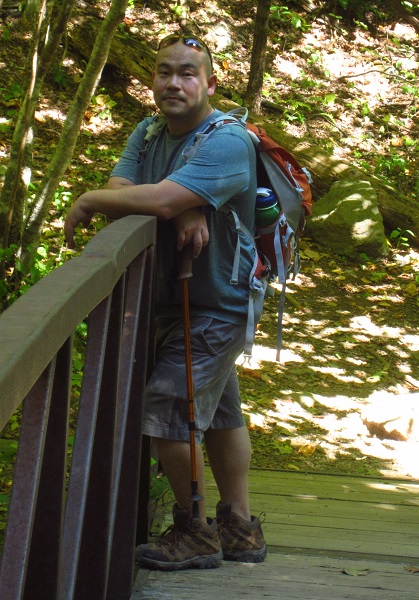Psychology of pain improvement
April 28, 2018
 Won Sung, PhD started his college education as a psychology major at Arcadia University thinking he would find a doctoral program in behavioral neuroscience. He had been doing research on motor behavior and cognitive processes specifically movement control in mice with strokes when his research advisor, a physical therapist, suggested he look into physical therapy (PT). “I had most of the prerequisites completed and there was some common interest based on the research I was doing,” Sung said. What he found appealing about this path was the intersection of his interest in motor control and coordination and the cognitive processes that take place in patients with chronic pain.
Won Sung, PhD started his college education as a psychology major at Arcadia University thinking he would find a doctoral program in behavioral neuroscience. He had been doing research on motor behavior and cognitive processes specifically movement control in mice with strokes when his research advisor, a physical therapist, suggested he look into physical therapy (PT). “I had most of the prerequisites completed and there was some common interest based on the research I was doing,” Sung said. What he found appealing about this path was the intersection of his interest in motor control and coordination and the cognitive processes that take place in patients with chronic pain.
He received his PT degree also from Arcadia and worked for ten years before deciding to get his PhD at Drexel. Sung had a different approach than most traditional students looking for a PhD program. He was already working and not worried about finding a program that would help him land a specific job, so he took five years to find a PhD advisor working in the area in which he was interested. As luck would have it, Drexel’s College of Nursing and Health Professions was geographically pleasing to Sung as was the possibility of having Sheri Silfies, PT, PhD, an associate professor in its physical therapy and rehabilitation sciences department, as his faculty advisor. Silfies research on low back pain in relation to neuromuscular control appealed to the behavioral neuroscientist in Sung.
它
苏
Sung also believes it's beneficial for people to know that his first focus is to improve function and hopefully make them a little bit more comfortable. “There is an aspect of making sure people understand that you might not always be pain-free because structures do break down,” he admitted. “But even with these people who have this grim, dire outlook on things, for some reason, when they start accepting that, they actually start to have less pain and start to feel better.”
Wh
As far as what’s in store for him for the next few years, Sung says he hasn’t figured it out yet. “I guess I’ll still be at Penn, depending on if there are enough things that continue to challenge me and keep me thinking like clinicians who need to be mentored or new projects being undertaken. As long as I’m not bored.”